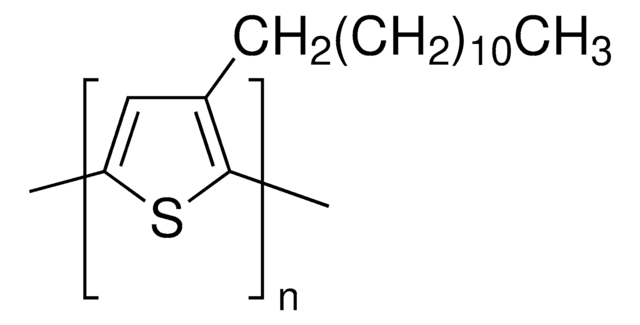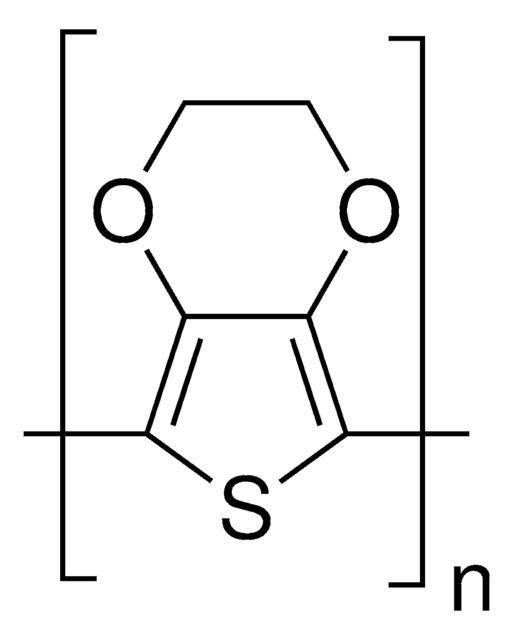511420
Poly(3-butylthiophene-2,5-diyl)
regiorandom
Sinônimo(s):
P3BT
About This Item
Produtos recomendados
cor
red
solubilidade
chloroform, methylene chloride, toluene, and THF: soluble
fluorescência
λex 419 nm; λem 550 nm in chloroform
InChI
1S/C10H16S/c1-4-5-6-10-7-8(2)11-9(10)3/h7H,4-6H2,1-3H3
chave InChI
DUOSBQJOYVIVOR-UHFFFAOYSA-N
Procurando produtos similares? Visita Guia de comparação de produtos
Descrição geral
Aplicação
Embalagem
Citação
Informações legais
Rieke is a registered trademark of Rieke Metals, Inc.
Código de classe de armazenamento
11 - Combustible Solids
Classe de risco de água (WGK)
WGK 3
Ponto de fulgor (°F)
Not applicable
Ponto de fulgor (°C)
Not applicable
Equipamento de proteção individual
Eyeshields, Gloves, type N95 (US)
Escolha uma das versões mais recentes:
Certificados de análise (COA)
Não está vendo a versão correta?
Se precisar de uma versão específica, você pode procurar um certificado específico pelo número do lote ou da remessa.
Já possui este produto?
Encontre a documentação dos produtos que você adquiriu recentemente na biblioteca de documentos.
Os clientes também visualizaram
Artigos
The application of conducting polymers at the interface with biology is an exciting new trend in organic electronics research.
Polymer Semiconductors for Intrinsically Stretchable Organic Transistors
Recent progress in the area of solution-processed functional materials has led to the development of a variety of thin-film optoelectronic devices with significant promise in the industrial and consumer electronics fields.
Nossa equipe de cientistas tem experiência em todas as áreas de pesquisa, incluindo Life Sciences, ciência de materiais, síntese química, cromatografia, química analítica e muitas outras.
Entre em contato com a assistência técnica
